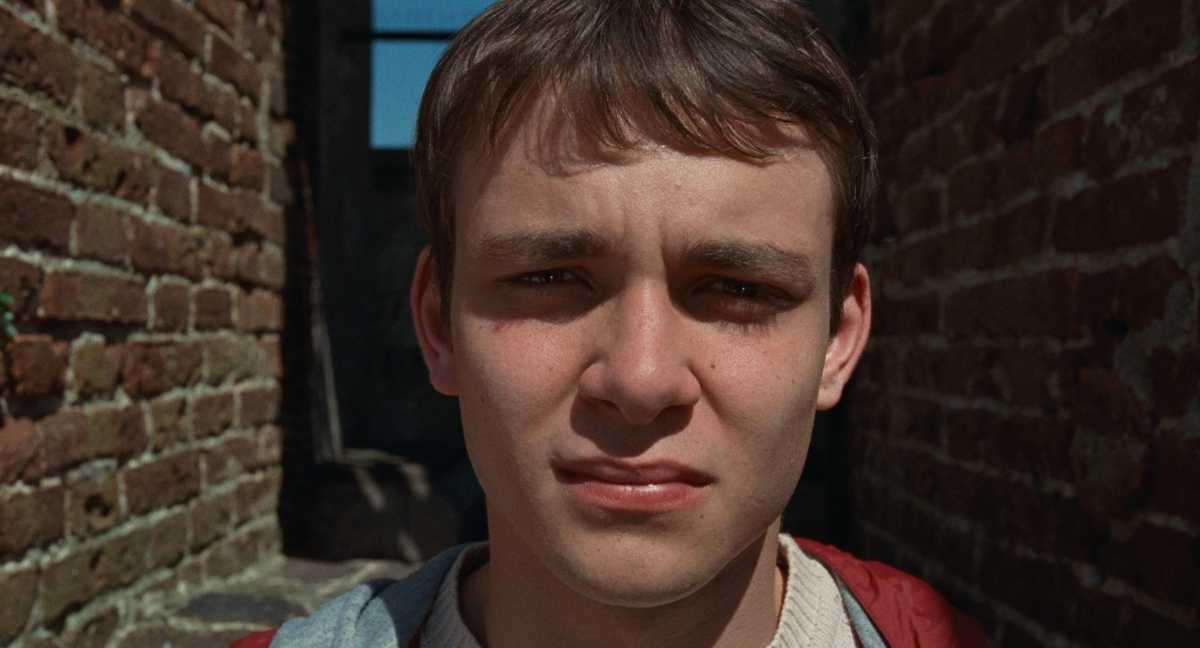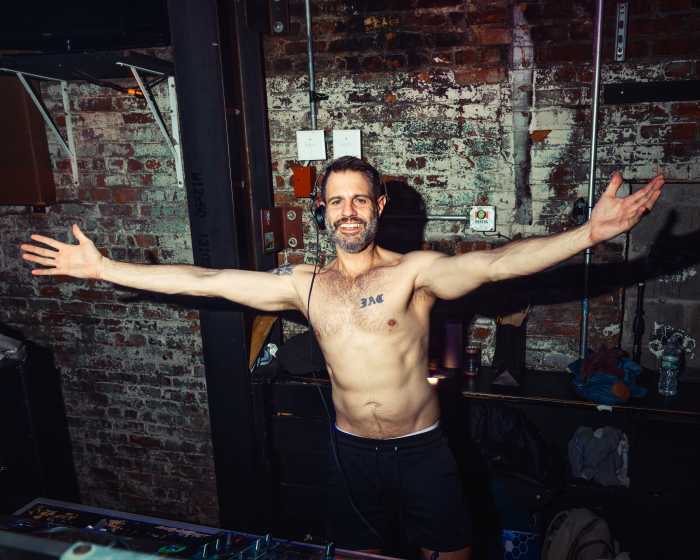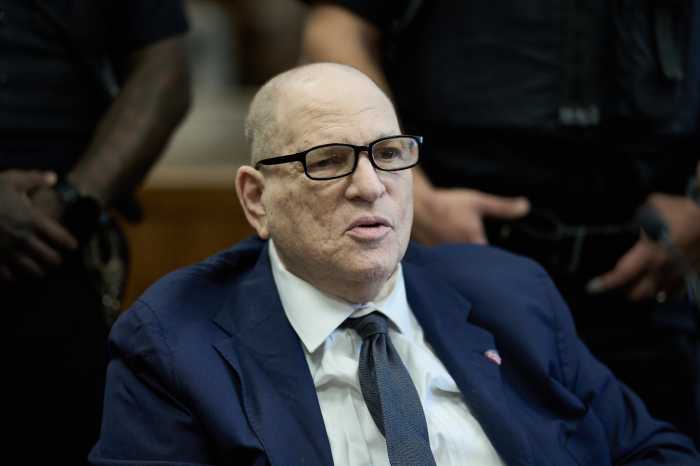Whose perspective does the camera in Giovanni Tortorici’s “Diciannove” represent? The film enters the mind of its protagonist, Leonardo (Manfredi Marini). When he dreams, animation and film clips cut from piglets to Justin Bieber to samurai. Tortorici’s style also remains distant. The camera slides down his torso slowly, as if watching him from above. Cutting out live sound and replacing it with music, as Tortorici does with a fight scene set to opera, defamiliarizes the images. “Diciannove” films Leonardo’s life as he experiences it, blurrily disconnected. His interiority and the exterior world he moves through remain out of sync.
Before heading off to college, a 19-year-old Leonardo wakes up with a profuse nosebleed. His mother drives him to the airport the following day. As he arrives in London, where he intends to study business, he heads to his sister Arianna’s (Vittoria Planeta) flat to stay. She reprimands him for a lack of planning. Partying with her proves unfulfilling, as he stumbles around vomiting after a night at a nightclub. He decides that he’s not actually interested in business school and takes the train back to Italy. He heads to the town of Siena, in Tuscany, to study 19th-century Italian literature. “Diciannove” picks up on the signs of his queerness: He gazes at naked photos of Justin Bieber and tries to arrange hook-ups with men on his phone. Leonardo proves to be a rather difficult person, subject to fits of belligerence and lazy enough to let food rot.
“Diciannove” pays tribute to Jean-Luc Godard with its use of intertitles with phrases like “so young,” “it’s not far,” and “perhaps the maid put LSD in the water bottle” onscreen. Beyond that, Tortorici picks up the French New Wave’s project of working in the street to capture youth’s energy. Despite these influences, “Diciannove” centers around a very different kind of young man. Leonardo comes to detest the modern world. After watching a music video featuring a teenage rap group, he begins an essay about the evils of trap music, going back to call the Beatles and Pink Floyd murderers for singing about drugs. At 19, he already senses a generation gap between himself and kids just four or five years younger.
He rejects the 20th century, saying it should all be blotted out with an X mark. The streets of Siera date back to the medieval era, devoid of contemporary commercialism. Leonardo is surrounded by beautiful cathedrals and Renaissance art. Even the grossest moments of his life are shot with a painterly attention.
Without exactly being a hypocrite, Leonardo’s still in the process of figuring out who he wants to be. This leads to some major contradictions. He masturbates to a scene from Pier Paolo Pasolini’s scandalous 1975 film “Salo,” but later criticizes the late gay author/director. The title refers both to his age and his aesthetic preferences. His conservative impulses come from a desire for security rather than thought-out politics. His disgust with modernity implies concern about what it’s done to him. A non-professional actor, Marini’s own unease in front of the camera transfers to his character.
Tortorici’s direction and Massimiliano Kuveiller’s cinematography run the risk of becoming overwrought. They embrace nearly every trick imaginable: Besides the aforementioned animation, there are zooms, jump cuts, slow motion and split screens. The frame rate is constantly off-kilter. Tortorici inserts abrupt close-ups with near-subliminal speed. The film school sensibility of “Diciannove” collides with Leonardo’s impulsive nature. As he drifts from moment to moment with no real plan, it’s no wonder that the camera struggles to keep up. The editing produces a remove from time.
Gay director Luca Guadagnino produced “Diciannove” after Tortorici worked as his personal assistant on the TV series “We Are Who We Are” and film “Bones and All,” which may lead to comparisons with “Call Me By Your Name.” Their takes on adolescence are actually rather different. Tortorici is concerned with it as a stage in between childhood and adulthood, recreating the bumps that come along with it. “Diciannove” skips over the standard threads of the coming out story: Leonardo’s sexuality isn’t the film’s focus. Nothing about his life has settled down, and he hasn’t adopted an identity with which he’ll stick. The greatest strength of “Diciannove” is capturing this flux as it’s still happening.
“Diciannove” | Directed by Giovanni Tortorici | In Italian with English subtitles | Oscilloscope Laboratories | Opens July 25th





































